Renovating Medical Facilities in Ukraine
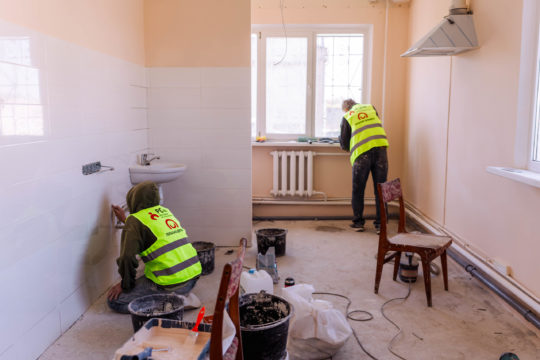
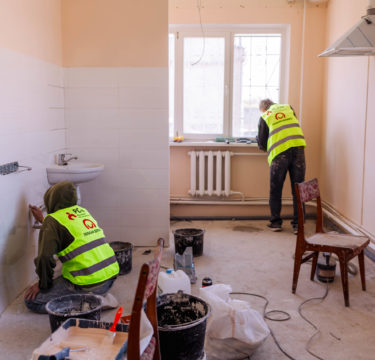
In many Ukrainian towns, especially those closer to the front lines, functioning medical facilities are either absent or in urgent need of repair—not only due to war-related damage. The Polish Center for International Aid Foundation is currently renovating and adapting five medical facilities in the Poltava region to meet the needs of people with disabilities.
In many Ukrainian communities, especially those near the front lines, there are currently no functioning medical facilities. Those that do exist require urgent renovations due to war-related damage. The war has forced many people to flee their homes. Those who remain are mostly older people, the sick, and people with disabilities. These are the very individuals supported by the Polish Center for International Aid (PCPM), which is renovating and adapting five medical facilities in the Poltava region to meet the needs of people with disabilities, and ten more in the Kharkiv and Kherson regions.
Simple renovation, unusual effect
“We’ve finally reached a beautiful moment. At last!” says Oleksandr Liakh, an older resident of the small town of Rudenkiwka in the Poltava region, with a sigh of relief. In this town, PCPM is renovating a family medicine outpatient clinic.
We are improving accessibility to facilities for people with mobility issues. We will widen doors to make entry easier and adapt toilets for people with disabilities. We will also have new analyzers, explains Tetiana Yatsenko, a nurse at the clinic.
In the town of Hradyzk, the renovation includes the entire family medicine clinic building.
“In total, we will renovate and adapt nine rooms to meet the needs of local residents,” says Tatiana Mykytan from PCPM.
The renovation works are simple because that’s what’s needed on the ground: window replacements, widening of doors, electrical rewiring. Ordinary repairs that, in the context of war, become extraordinary support—restoring hope.
The aim of this support is to improve and speed up access to medical services. The main goal is the reconstruction of damaged or neglected primary healthcare infrastructure. In places like Rudenkiwka, Bilyky, or Nova Znamianka, where residents—many of them retirees—have long waited for improvements, help from Poland brings real, tangible change to the quality of life.
“I’ll be able to get all the necessary tests done locally. I won’t have to travel to a hospital located dozens of kilometers away,” says Maryna Harmash from Bilyky.
In the Znamianka outpatient clinic, much of the work has already been completed: windows and doors have been replaced, along with the electrical installation. The flooring is currently being prepared.
Modern analyzers, cardiology equipment, and automatic and biochemical analyzers for adults will be delivered to the facilities. Plans also include office equipment, such as laptops for doctors. Laboratories will be created or renovated, enabling basic tests to be carried out on-site.
In addition to renovations and equipment purchases, medical staff training is also planned.
Barrier-Free Access
An essential element of the project is ensuring that facilities are accessible to people with mobility difficulties. Doors are being widened to ease entry. Toilets are being adapted for people with disabilities, and ramps are being constructed or repaired at entrances.
“All the work is being carried out with full accessibility in mind,” emphasizes Vitaliy Zhmak, village head of the Novoznamyanske district.
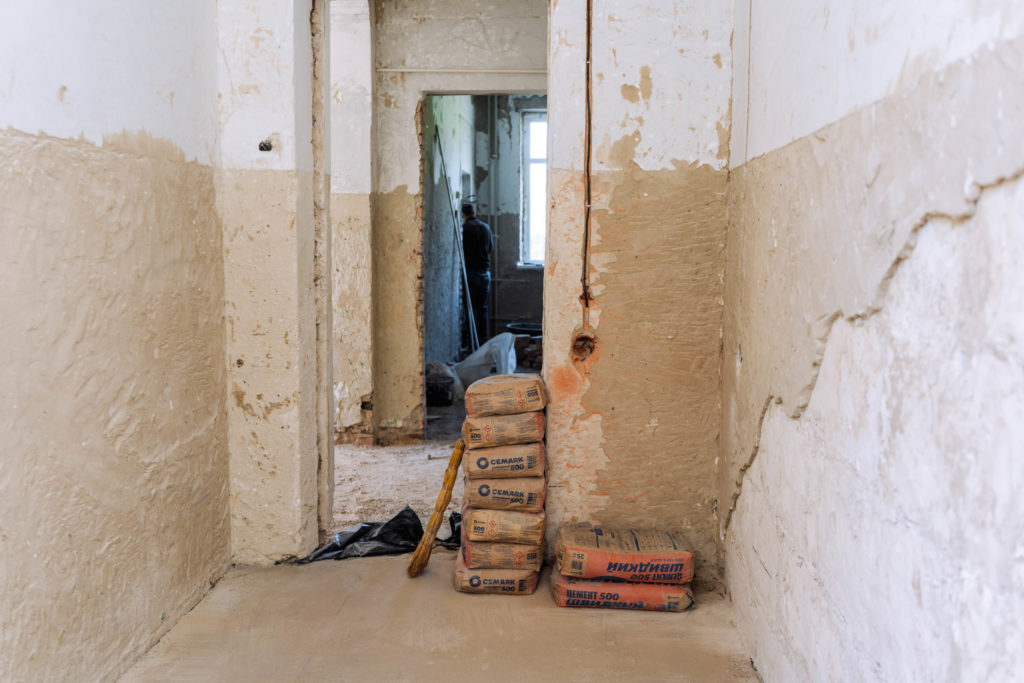
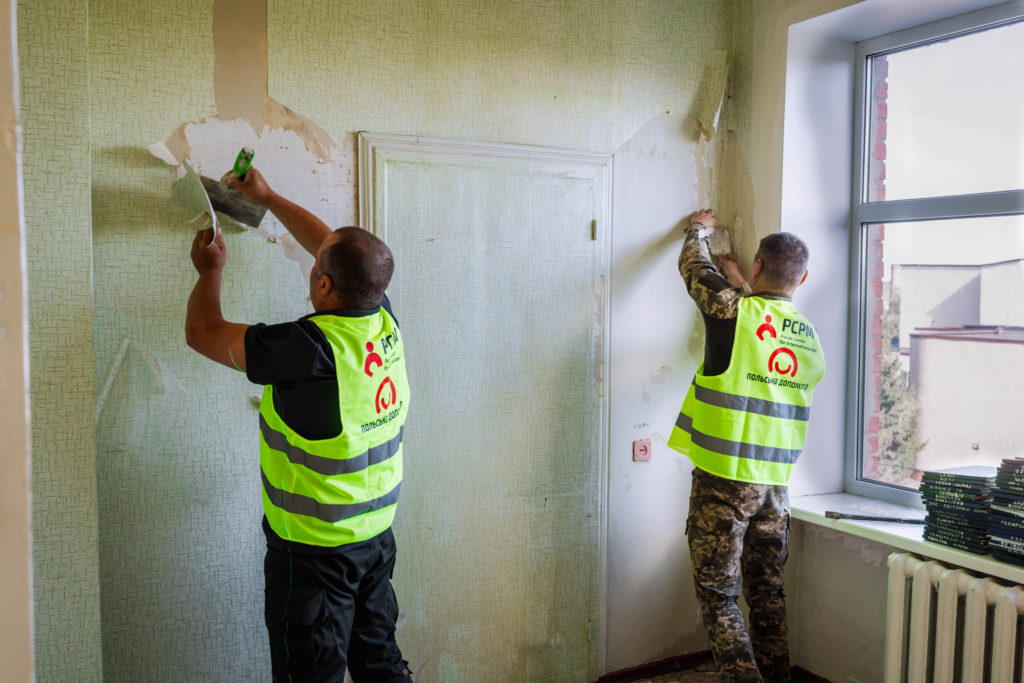
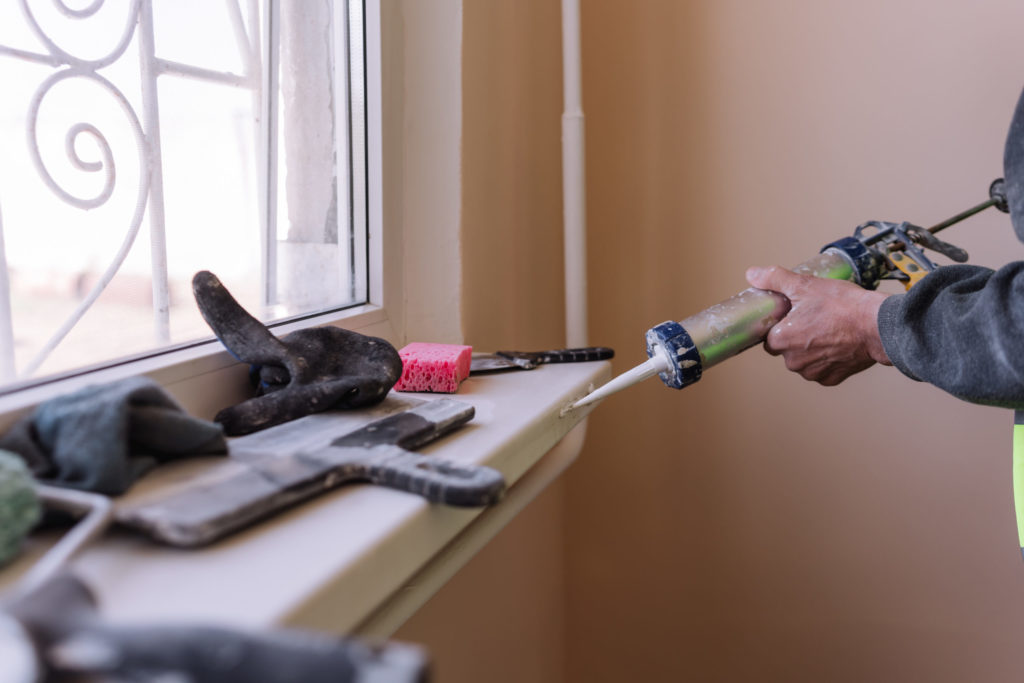
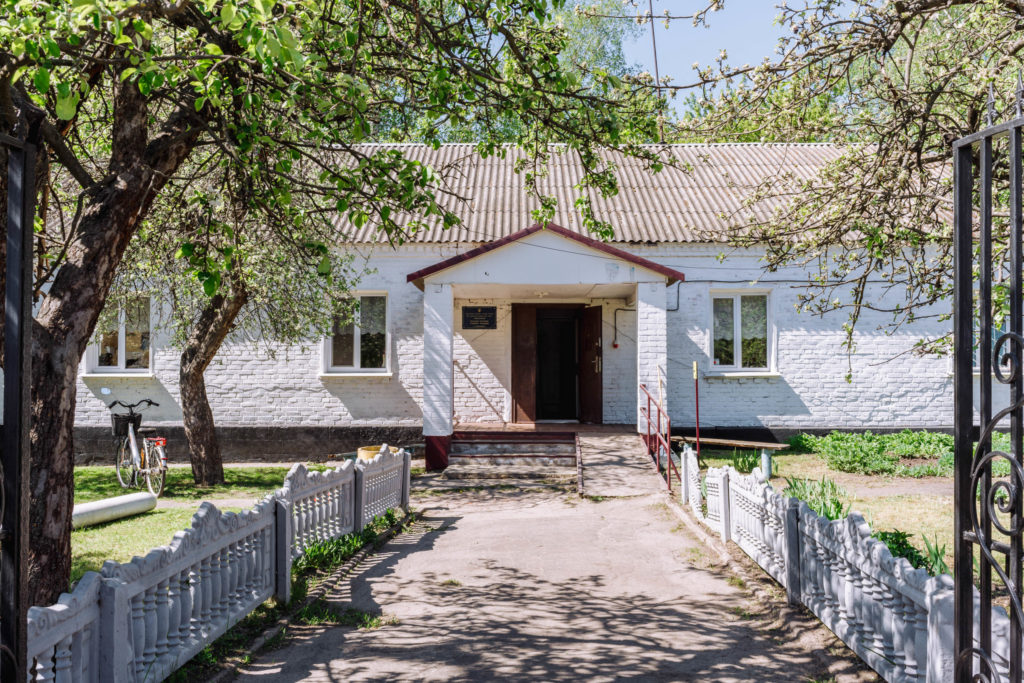
In Znamianka, in addition to adapted toilets, special sensory and integration rooms for children will also be created. The project places strong emphasis on addressing the needs of individuals with special requirements, in accordance with applicable standards.
Partnership for Health – Poland’s Role
The project is funded under the Polish Aid program by the Ministry of Foreign Affairs of the Republic of Poland and implemented by the Polish Center for International Aid Foundation.
“The works are being carried out within the framework of international agreements. Altogether, this represents a clear expression of Polish solidarity and support in the face of war,” stresses Herman Kraievskyy, director of the hospital in Mashivka.
More Than a Renovation
Renovating outpatient clinics is not just about restoring buildings—it’s about restoring essential medical services. Many residents in war-affected regions will now be able to feel a little safer. In wartime, help focused on “ordinary things” takes on a completely different meaning, building hope for a better future in a rebuilding Ukraine.